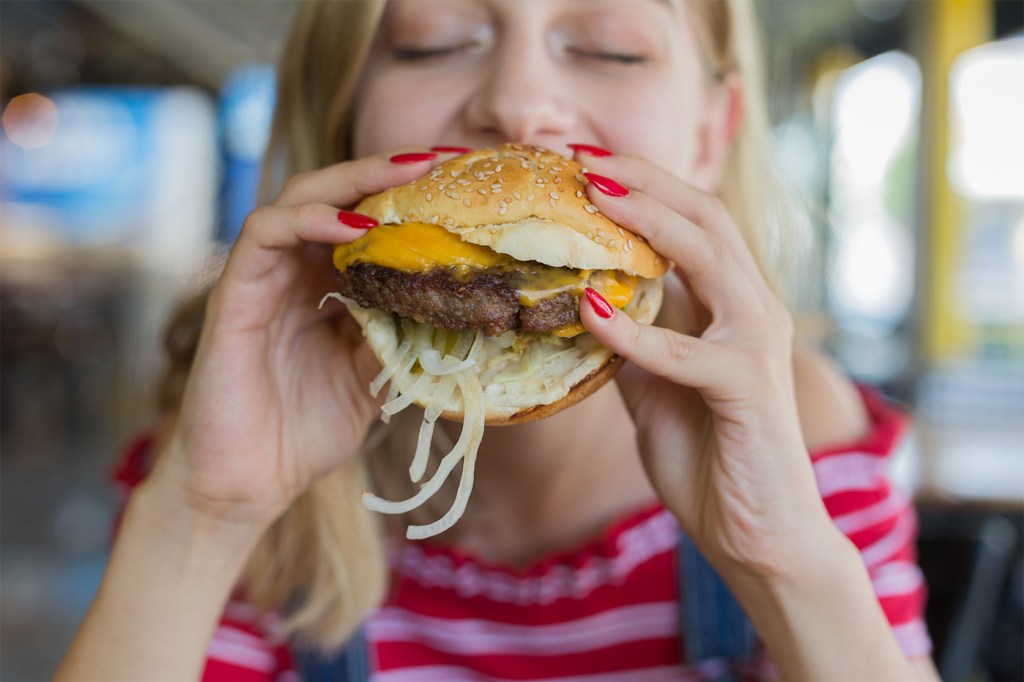The UK plans to ban TV junk food advertising before 9 p.m. Could it cut child obesity levels?
Northeastern academics debate whether restrictions on promoting foods high in fats, sugars and salts will help slim down Britain’s bulging waistlines.

LONDON — British government ministers believe obesity levels have hit a crisis point and are taking aim at junk food advertising in an attempt to reverse the trend.
The Labour government announced it will introduce a ban in 2025 on junk food advertising on television from 5:30 a.m. to 9 p.m., with a total ban on paid-for online advertising. The prohibition will also apply when watching on-demand programs online.
Health Minister Andrew Gwynne, in a written statement to the House of Commons, said the policy was designed to relieve the “pressure” on the National Health Service (NHS) created by the “childhood obesity crisis,” with one in three children classed as obese or overweight by the time they are 11.
“These restrictions,” Gwynne says, “will help protect children from being exposed to advertising of less healthy food and drinks, which evidence shows influences their dietary preferences from a young age.”
Sabina Crowe, an associate professor of economics on Northeastern University’s London campus, says the health minister’s argument is backed up by research.
“There has been quite a bit of research that finds a positive correlation between the amount of adverts someone is subjected to and the amount of junk food they purchase,” says Crowe, an expert in food and consumer economics.
“So if kids and everyone else is going to see fewer adverts for junk food, then they are highly likely to consume smaller amounts of it. There should be a strong positive impact here,” Crowe says.
However, other experts suggest the ban — due to come into force next October — fails to get to the root cause of the problem.
Politicians should be looking to improve nutritional education both in schools and in the home, according to Northeastern assistant professor Dina Rabie, if they want to succeed in slimming down the waistlines of British families.
“I do wonder how effective this will be because do kids really want to buy junk food because they see the ad on the TV — or is it because they have tried it once and they want it again?” Rabie asks.
“So I am very skeptical about the cost effectiveness of such a ban because the government will be putting a lot of money into enforcing it and making sure that all businesses comply. But from an economic point of view, I also think that the government is not allocating enough resources to tackling the problem of child obesity.”
Glitzy and playful advertising
Being subjected to glitzy and playful advertising for fast food can make children hanker after sustenance that is bad for their health, Crowe says.
“When it comes to kids being bombarded with those adverts, what happens is they crave those foods a lot more and they pester their parents to buy junk food for them,” she says. “It is often very difficult for parents to say no, so they give in. And then kids end up eating a huge amount of foods that have too much fat, too much sugar and too much salt — and that has a negative impact on their health.”
Crowe points to widespread public support for tackling the level of exposure children have to junk food advertising. When polling firm YouGov surveyed more than 2,000 people in Britain for the Obesity Health Alliance last year, one in eight said they supported a ban of unhealthy food adverts on television aimed at children. Around the same wanted online marketing restrictions.
Featured Posts
The government says obesity costs the NHS — Britain’s free-at-the-point-of-access health care system that is funded through taxation — £11.4 billion ($15 billion) per year and is the second-biggest preventable cause of cancer.
And the problem starts at a young age. According to NHS data from 2022, one in 10 children ages 4 to 5 are recorded as being obese — usually defined as having a body mass index (BMI) of 30 or above. By the time they are due to leave elementary school at age 10-11, obesity levels rise to affect almost a quarter of the class.
The statistics are on a par with the United States, where, according to data from 2017 to 2020 published by the U.S. Centers for Disease Control and Prevention, 20% of children ranging in age from 6 to 11 are classified as obese. In 2019, the estimated annual medical cost of obesity among U.S. children was $1.3 billion.
Social media restrictions, too?
Crowe argues that the government’s plans for restrictions on promoting foods that are high in fats, sugars and salts — an idea first proposed by the Conservative Party when it was in power in 2021 but was then delayed — could be even more successful if it was extended to include social media as well.
“Because a lot of us are on social media — and TikTok in particular is popular with kids these days — I feel like this is not going to have as big an impact as it could have if advertising on social media was banned as well,” Crowe says.
Investing in public health programs
On the other hand, Rabie thinks that ministers could potentially spend the enforcement money more wisely by investing in public health programs, such as making school meals healthier and raising awareness among pupils about the importance of eating well.
Ideas such as ensuring that all children can access fun exercise programs at school and targeting parents with healthy cooking campaigns have the potential to wield greater results in the battle against obesity, Rabie suggests.
“Who buys the junk food for the children? It is mainly the parents,” the behavioral economist continues. “And why do they do that? It can be a matter of preference or a matter of ease. But if we raise awareness among parents and caregivers about how important it is to teach your children to eat healthily and how many problems it avoids in the future, this may be more effective than just a ban.”
The pre-watershed television junk food ad ban is an “interesting concept” and comes with the right intentions, says Rabie, but the danger is that it is more posturing than impactful.
“I think that only talking about a ban on ads on TV and online is far from comprehensive for tackling the problem and it is just taking the easy way to satisfy the public that we are doing something,” says Rabie, who also teaches in London.
Crowe accepts there are arguments against the policy. But to her mind, an ad ban is worth experimenting with, especially if it encourages retailers to focus on marketing more nutritious edible products.
“Why not just try to have a ban and see how it goes,” she says, “even if, in practice, we might not end up with the best results? Who are we hurting at the end of the day? We’re not hurting kids by not subjecting them to so many adverts.
“No one will be stopping you from buying junk food — it will still be available on every street corner. What we’re doing is pushing companies to perhaps reformulate their products and increase the number of health products that they sell. And that’s a good thing.”











